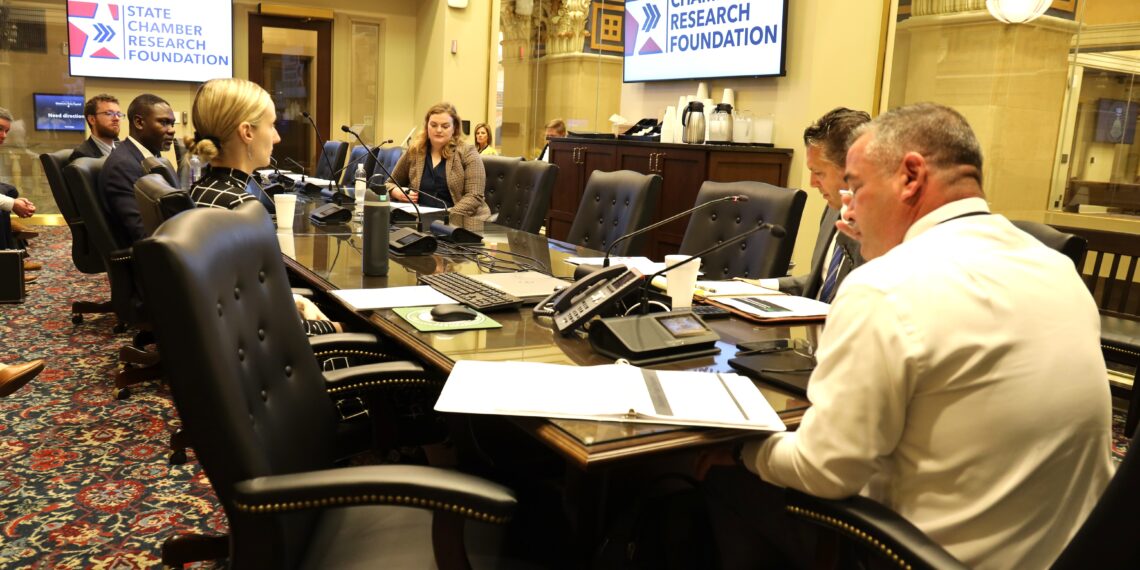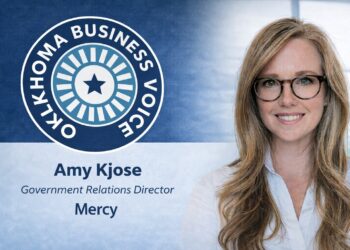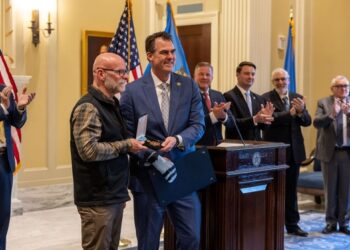OKLAHOMA CITY (OBV) — “We always want to make sure that we are growing jobs in Missouri. This is going to do the opposite and kill jobs. The really concerning part is small businesses are considering closing their doors because of these new costs,” said Kara Corches, president and CEO of the Missouri Chamber of Commerce and Industry.
Corches weighed in on the results her state is seeing after voters approved legislation mandating higher minimum wages.
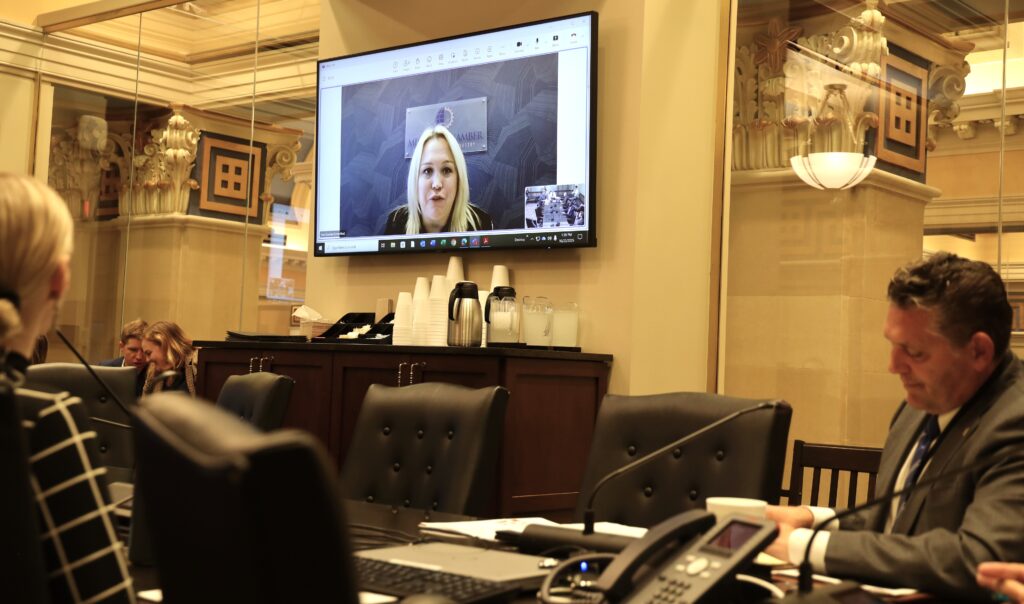
According to Corches, Missouri’s unemployment rate was 2.8% in January 2022. By August 2025, it had climbed to 4%. “We really do believe there is a tie between increasing minimum wage and unemployment, and unfortunately our rural communities are being hit the hardest,” she said.
Corches presented alongside other state and national leaders and experts during an interim study Oct. 23 at the Oklahoma State Capitol. The study, titled “Effects of Living Wage Laws on Employers and Unemployment,” was requested by Rep. Mark Tedford, R-Tulsa, and hosted by Rep. Chris Banning, R-Bixby.
“I believe that workforce participation is a key component of both promoting business development and lessening dependence on social programs,” Tedford said. “My concern is that living wage laws will actually have a negative impact on workforce participation and also harm business.”
In 2024, Missouri voters approved a series of minimum wage increases. By 2026, the state’s minimum wage will reach $15 per hour. Missouri officials say the increase will hurt teenagers and prevent them from learning essential life skills.
“It’s going to disproportionately hurt our youth workers,” Corches said. “Youths learn soft skills that are vital — how to work well on a team, dress appropriately, and show up to work on time. Businesses are not going to be able to afford to pay a high schooler $15 an hour.”
The State Chamber Research Foundation says mandated minimum wage increases have a “proven track record of disaster.”
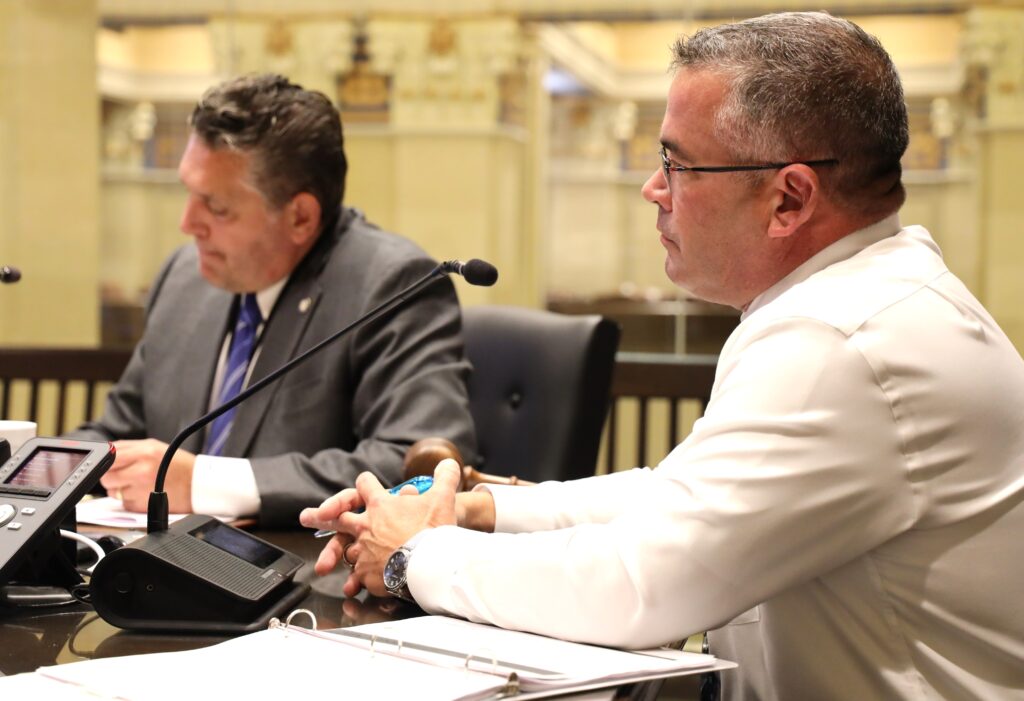
“Evidence shows when a state or city increases its minimum wage, businesses react in three ways: cut hours, reduce hiring and increase prices,” said Amanda Hall, director of research for the foundation.
“For example, when California’s fast-food minimum wage — now $20 per hour — went into effect, 18,000 jobs were lost in the sector. Consequently, fast-food prices since the wage hike increased 13.1%, double the national average,” Hall said.
Banning pointed to California’s net outmigration to Oklahoma following wage increases and to major companies in Chicago and Omaha pulling out of those cities amid similar mandates.
“Have you seen any facts that show we should raise our minimum wage?” Banning asked.
“No, I haven’t seen that, Mr. Chairman,” said Bradly Ward, deputy state director of Americans for Prosperity. “Living wage mandates sound well-intentioned, but the data reflects that they reduce jobs and hurt those they’re intended to help.”
The National Federation of Independent Business also weighed in during the interim study.
“The effects are extensive and complex,” said Peter Hansen, executive director. “Actions have consequences; there is no such thing as a free lunch.”
Hansen noted that consequences for businesses include price increases, job cuts, reduced health care coverage for employees and shifting full-time positions to part-time.
He added that workers already earning $15 an hour would demand higher pay as well. “They are either going to switch jobs or force their employer to give them a raise,” Hansen said.
Missouri Chamber officials echoed those sentiments. “It’s going to increase the cost of doing business. It’s going to increase the cost of goods because the cost will indeed be passed on to consumers,” Corches said.
She added that small businesses and small-town companies would be hardest hit. “This is really concerning for us in terms of economic competitiveness,” Corches said.
Presenters didn’t just point out faults in wage mandate laws. Many proposed other ways to raise Oklahoma workers’ salaries, including workforce development, income tax credits and skills training programs — approaches they said would strengthen both the labor force and the economy.
“These strategies empower Oklahomans to earn more through skill and effort,” Tedford said. “That’s the right way to build opportunity, not through government mandates that limit it.”
Banning wrapped up the study by saying, “Businesses will close. They will start investing in technology instead of people.”









